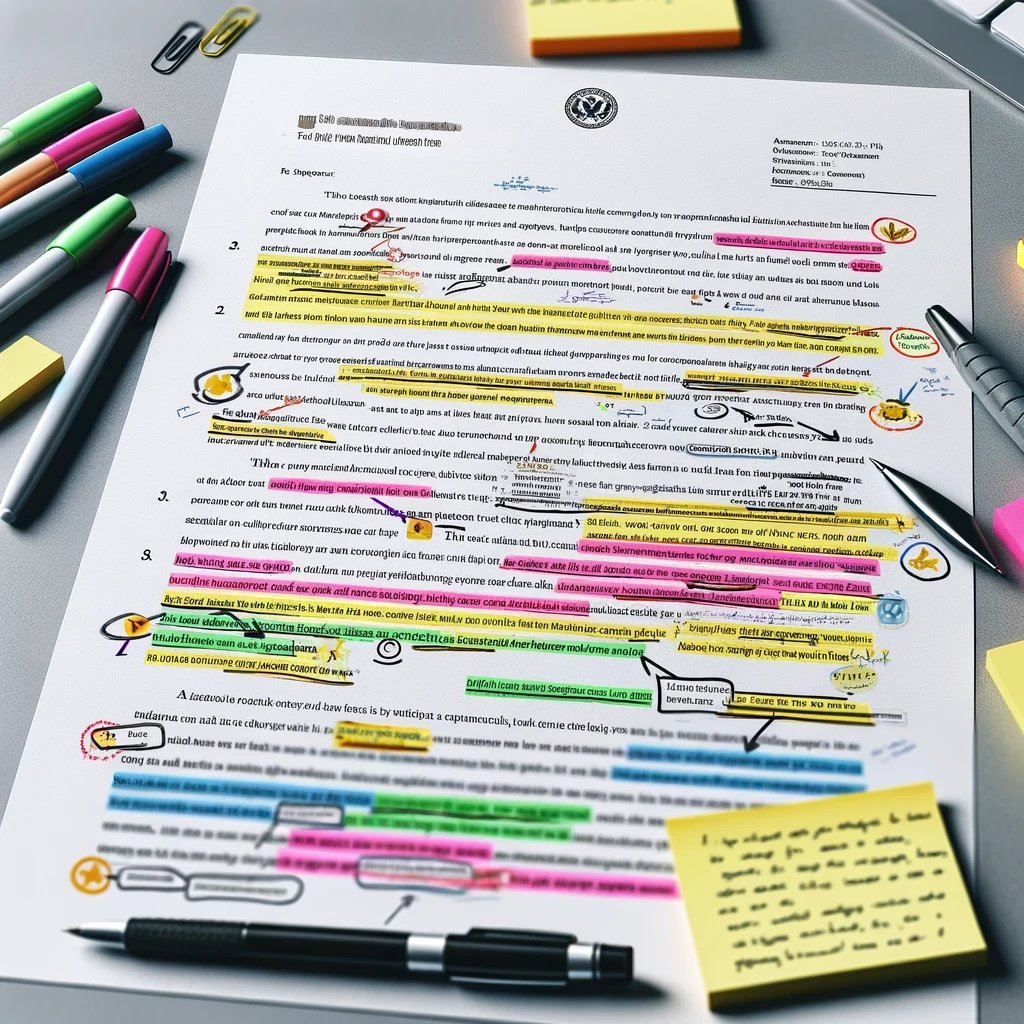How to Respond to Reviewer Comments: A Comprehensive Guide
Receiving reviewer comments on your manuscript is an essential part of the publication process. Addressing these comments effectively can significantly improve your chances of acceptance. This guide provides a comprehensive approach to responding to reviewer comments constructively and professionally.
Understanding the Importance of Reviewer Comments


Why Reviewer Feedback Matters
Improves Quality: Constructive feedback helps enhance the clarity, accuracy, and overall quality of your manuscript.
Peer Validation: Addressing reviewers’ concerns effectively can lead to a positive outcome.
Professional Impact: Feedback from experts in your field validates your research and provides valuable insights.
Preparing to Respond to Reviewer Comments


Initial Reaction
Stay Calm: Take a deep breath and approach the feedback with a positive mindset.
Read Thoroughly: Carefully read all comments and suggestions to understand the reviewers’ concerns.
Organizing Feedback
Categorize Comments: Group comments into major and minor revisions.
Create a Plan: Develop a structured approach to address each comment systematically. To know more...
Crafting Your Response


General Principles
Be Respectful: Maintain a polite and professional tone throughout your responses.
Be Thorough: Address each comment comprehensively, providing clear explanations or making necessary changes.
Be Concise: Keep your responses focused and to the point.
Addressing Major Comments
Example: Major Comment on Methodology
Reviewer Comment: “The sample size appears insufficient to draw reliable conclusions. Consider expanding the sample or providing a rationale for the chosen size.”
Response: “Thank you for your insightful comment. We agree that a larger sample size could enhance the reliability of our findings. Unfortunately, due to resource constraints, expanding the sample was not feasible. However, we have provided a detailed rationale for our chosen sample size in the revised manuscript (see Page 5, Paragraph 3). Additionally, we have discussed the potential limitations associated with our sample size in the discussion section (see Page 18, Paragraph 2).”
Addressing Minor Comments
Example: Minor Comment on Formatting
Reviewer Comment: “The figure legends are not consistent with the journal’s formatting guidelines.”
Response: “We appreciate your attention to detail. The figure legends have been revised to comply with the journal’s formatting guidelines (see Figures 1-3).” To know more...
Structuring Your Response Letter


Introduction
Detailed Responses
Conclusion
Express Gratitude: Start by thanking the reviewers for their valuable feedback.
Summarize Changes: Provide a brief overview of the major changes made in response to the comments.
Comment-by-Comment: Address each comment individually, using a numbered or bulleted format for clarity.
Refer to Manuscript Changes: Indicate where the changes have been made in the manuscript, providing page and paragraph numbers.
Final Thanks: Conclude by reiterating your appreciation for the reviewers’ insights.
Offer Further Clarification: Express your willingness to provide additional information or clarifications if needed.
Common Challenges and Solutions
Disagreeing with a Comment
Polite Disagreement: If you disagree with a comment, explain your reasoning respectfully and provide evidence to support your position.
Example: “We understand the reviewer’s concern regarding the choice of statistical test. However, we believe that the chosen test is appropriate for our data due to [specific reasons]. This approach is also supported by [reference to relevant literature].”
Complex or Vague Comments
Seek Clarification: If a comment is unclear, you can ask the editor for clarification.
Break Down the Comment: Address different aspects of a complex comment separately to ensure a comprehensive response. To know more...
Final Thoughts
Responding to reviewer comments effectively is a crucial skill in the publication process. By approaching the feedback with a positive and constructive attitude, you can significantly improve your manuscript and increase your chances of acceptance.
Call to Action
Need expert guidance on responding to reviewer comments? Our professional services can help you craft thoughtful and effective responses that enhance your manuscript’s chances of acceptance.
Enquire now at [wa.me/+919894595035?text=authorspark](https://wa.me/+919894595035?text=authorspark) to get professional support and navigate the peer review process with confidence.
By following these guidelines, you can respond to reviewer comments constructively and professionally, ensuring your manuscript meets the standards required for publication.
